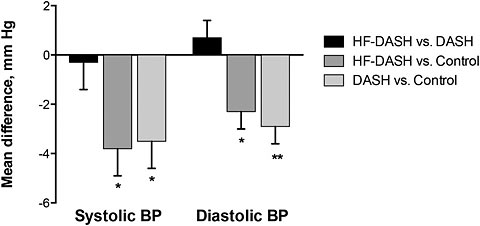Follow us 261.1k
Quick Summary tl;dr
When it comes to heart health, explore all associated risks. Speak with your healthcare provider and get the big picture.
Low fat diets may increase your risk for heart disease.
Follow a ketogenic diet to lower inflammation, oxidation, artery plaque and improve metabolic and genetic markers for heart disease as we uncover more information on heart health.
Foods play a strong role in heart health. While eating a ketogenic diet balance Omega 3 and 6 fats and the minerals magnesium and calcium. Choose foods that are high in vitamins A, B, C adequate in iron and those that will help manage homocysteine, fibrinogen and C-reactive protein to lower heart disease risk.
In the first of the Keto & Heart Disease series, we looked at the prevalence, risk factors and symptoms of heart disease. The main predictors of developing heart disease and the markers we should be focusing on are chronic inflammation, oxidation, metabolic markers and artery plaque. Let's look at how we can reduce risk of heart disease by changing our diet.
Heart Disease: Busting the Myths
Most people have grown up believing that high fat, high cholesterol foods like bacon and eggs, steak or shrimp will raise cholesterol levels, clog arteries and cause a heart attack.
And it is a difficult stigma to shed especially when popular studies like Dietary Approaches to Stop Hypertension (DASH) 1 surface with results that claim to reduce in total cholesterol and blood pressure with a low-fat, high-carbohydrate diet (30% fat, less than 7% saturated fat and 55% carbohydrate) ( 1).
However recently a randomized controlled study published in the American Journal of Clinical Nutrition ( 2) compared the DASH diet with a DASH diet containing higher fat (HF) and a control.2 In the HF diet, nonfat and low-fat dairy was replaced with full-fat dairy products. Sugars, mostly from fruit juices, which constituted 59% of total fruit intake in the DASH diet were also reduced. There was an almost 15% higher carb total and a 13% lower amount of fat (7 tsp fat, 8% saturated fat 160 mg cholesterol) on the low fat vs. high fat diet (12 tsp fat, 14% saturated fat and 221 mg cholesterol).

Thirty-six men and women followed each of these three diets for about 16 months. Cardiovascular inflammation markers (apo A-1 and apo B), LDL/HDL lipoprotein particle size and concentration were measured.
Higher Fat Diet Lowered Risk & Outperformed High-Carb Diet
Both the HF and original DASH diet significantly reduced total cholesterol and reduced blood pressure compared with the control diet. The high-fat DASH significantly lowered triglycerides, lowered the size of very low density lipoprotein (VLDL) and raised LDL particle size — all of which lower cardiovascular risk. The DASH diet significantly reduced LDL cholesterol, large LDL particle size (small LDL particle size raises risk) and HDL cholesterol (higher levels of HDL cholesterol lowers risk).
The findings seem to be very telling in regards to the negative impact carbohydrates have on health even with a small percent adjustment in macronutrient composition. Both diets lowered blood cholesterol, yet the HF DASH did a better job at staving off cardiovascular disease risk. If the DASH diet was compared to a keto DASH, the benefits of eating more fat would likely be more significant. The authors concluded heart disease risk can be lowered by using saturated fat to replace carbohydrates.

Despite this study and a host of others ( 3, 4, 5, 8, 9, 10) showing that low fat, high carbohydrate/sugar diets may increase heart disease risk by promoting the formation of small, dense LDL particles, elevating triglycerides and lowering HDL while other studies find that low-carb, high-fat diets help promote large, buoyant LDL ( 5), the 2015-2020 Dietary Guidelines for Americans continues to encourage the public to adopt a low fat diet. Why direct the public towards eating low fat foods?
There Is No Evidence Linking Saturated Fat With Heart Disease
To date there is NO conclusive evidence linking saturated fat as independent risk factor with heart disease. Current research indicates that eating fat is healthier than eating carbs, and lowering fat would in essence raise carb intake, which could increase heart disease risk.

For example, cheese and meat are healthy sources of saturated fat. Recently researchers explored the effect of saturated fat from meat and high fat dairy ( 6).
In one study, three diet groups replaced typical foods with cheese or bread and jam:
- REG: 80 grams regular fat cheese
- RED: 80 grams reduced fat cheese
- CHO: no-cheese, carbohydrate control
After 12 weeks the high fat cheese REG diet did not change LDL cholesterol or metabolic risk. HDL was higher in the REG compared to the CHO group.
In another randomized ( 7), crossover saturated fat food comparison three diets equal in calories were studied to identify heart disease risk in relation to SFAs or carb intake. Three diets were: followed for 2 weeks each:
- a high cheese diet (96-120 g)
- a nondairy, high-meat diet
- a nondairy, low-fat, high-carbohydrate control
Heart disease risk was measured. The cheese and meat diets resulted in higher HDL cholesterol and apo A-I levels. The authors concluded the saturated fat diets "appear to be less atherogenic than a low-fat, high-carbohydrate diet".
How Does a High-Fat Ketogenic Diet Support Heart Health?
The more we learn and understand heart health and about food's specific role in health, the more we realize that current nutritional recommendations are not as "heart healthy" as once thought.
Heart disease has been considered a fat-storage disease: Excess fat consumed leads to being overweight and higher levels of blood lipids (triglycerides and lipoproteins), and increased cholesterol levels contribute to plaque formation in the arteries and raise the risk of heart disease. It is just not that simple.
The Ketogenic Diet Improves Metabolic Risk Factors
In light of what we now know about the involvement of inflammation and oxidation, plaque, genetics and metabolic parameters ( 8, 9, 10) we can eat a ketogenic diet that contains saturated fat to help keep these risks in check, while at the same time improving cholesterol and HDL too.

Brinkworth et al. compared a ketogenic diet (4% carbohydrate, 35% protein, and 61% fat as energy), with a low fat (46% carbohydrate, 24% protein, and 30% fat) diet for one year. The ketogenic diet improved triglycerides and HDL improved. Insignificant rises in LDL cholesterol occurred in both diet groups ( 11). Dave Feldman has an interesting theory on LDL activity in response to a keto diet.
In this 2 year study LDL cholesterol levels decreased in obese patients who followed a ketogenic diet (consisting of 30 g carbohydrate, 1 g/kg protein, 20% saturated fat, and 80% polyunsaturated and monounsaturated fat). "Significant decreases in body weight, blood sugar, triglycerides and LDL were seen while HDL significant increased" ( 12).
A meta analysis ( 13) was conducted on 23 randomized controlled clinical trials from multiple countries comparing low-carb diets with low-fat diets, from 1966–2011. Both diets reduced participants' blood pressures, total to HDL cholesterol ratios, and total cholesterol, LDL cholesterol, triglycerides, blood glucose, and serum insulin levels and raised HDL cholesterol; however, participants on low-carbohydrate diets had greater increases in HDL cholesterol and greater decreases in triglycerides but experienced less reduction in total and LDL cholesterol compared with those following low-fat diets.
"These findings have important clinical and public health implications. Over the past several decades, low-fat diets have been recommended to the public as a way to lose weight primarily because of their beneficial effects on metabolic risk factors. Our study suggests that low-carbohydrate diets might provide an alternative approach for weight reduction without worsening metabolic risk factors."
Is the Ketogenic Diet Safe?
There are numerous studies reflecting the safety and superiority of a ketogenic diet and its use for reducing cardiovascular risk factors in adults and children including artery plaque, c-reactive protein, BMI (body mass index), blood glucose, triglycerides, LDL and HDL cholesterol, body fat and diastolic blood pressure without increases in inflammation or oxidation ( 8, 9, 10, 11, 12, 13, 14, 15).

Ketogenic Foods for Heart Health
A healthy heart is a happy heart. Eat foods you love to experience all the health benefits. It is simple to shape your ketogenic meals to help influence genetic expression, lower inflammation, oxidation and improve metabolic profile while eating foods you savor.
Avoid foods that cause inflammation and oxidation like vegetable oils, trans fats, and sugar. Nutrients and foods influence risk factors for heart disease and can help lower inflammation and oxidation.
Foods To Lower C-Reactive Protein
Keep your carbs low and avoid added sugars. Include foods containing:
- Vitamin C (strawberries, bell peppers, broccoli and Brussel sprouts)
- Fiber (avocado, coconut, artichoke, okra, raspberry or blackberry)
- Omega 3 fatty acids (anchovies, walnuts, fatty fish, chia seed and flax seed, grass fed beef)
- Antioxidants (especially cocoa and dark chocolate with minimal sugar, 90% cocoa with at least 5 grams of fiber)
A 2008 study found that people who reported consuming up to 20 grams of dark chocolate twice a week had serum CRP concentrations that were significantly lower than people who reported avoiding dark chocolate alrogether or consuming very high amounts ( 16).
What to avoid: Consumption of omega 6 vegetable oils (corn/soy oil) from packaged and commercially prepared foods typically throw Omega 3 fats out of balance.
Foods Rich in Vitamins and Minerals
- Magnesium: spinach, pumpkin seeds, almonds, fatty fish, tuna, dark chocolate, avocado, kefir and Greek yogurt.
- Iron: best absorbable form is heme iron in red meat and liver, while spirulina and dandelion greens are high in non-heme iron. Getting iron from foods when eating a balanced lchf diet lchf diet high in healthy fat is especially important for menstruating women, and is not dangerous unless you have a hereditary condition called Hemochromatosis (a condition where too much iron builds up in the body). Eating too much iron when you have hemochromotosis can be potentially dangerous.
- Homocysteine: foods high in B vitamins and folate (liver, mackerel, lamb, sardines, romaine lettuce, avocado), choline (eggs, shrimp, chicken, collards), glutathione (asparagus, parsley, cabbage, cauliflower) and spices (garlic tumeric, cinnamon). Avoid or eliminate alcohol and smoking.
- Fibrinogen: foods high in beta carotene (Swiss chard, turnip greens) parsley, green tea, Greek yogurt and sauerkraut, along with vitamin E (sunflower seeds and nut oils).
Heart-Healthy Keto Recipes
Here's how to eat right for your heart to minimize all risk factors.
Do you like this post? Share it with your friends!